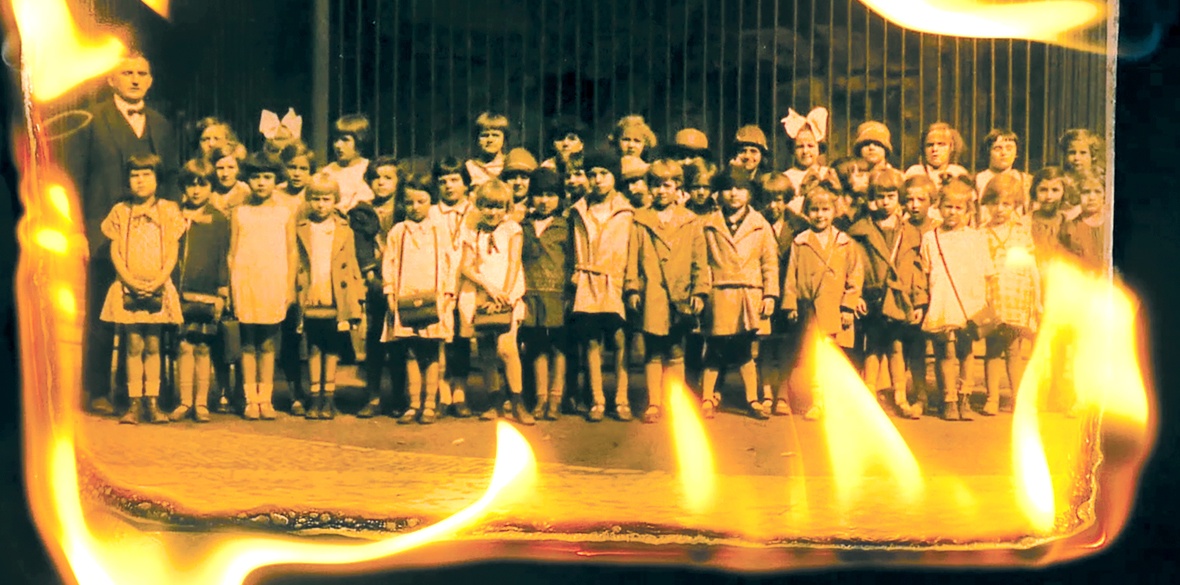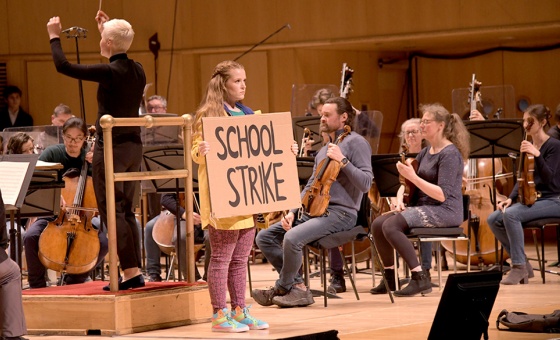This is the last article you can read this month
You can read more article this month
You can read more articles this month
Sorry your limit is up for this month
Reset on:
Please help support the Morning Star by subscribing here
AS SUCCEEDING generations discover and seek to reclaim lost or hidden narratives, over recent years there has been a steady flow of Holocaust stories and Jewish family histories.
This is hardly surprising, given the extent and depth of the horror that the Nazi regime wrought. Yet continuous, though necessary, reminders of that dark period of history and over-repetition of similar accounts can blunt rather than sharpen our sensibilities.
But My name is Sara, the upcoming exhibition of photography and video by award-winning artist Sara Davidmann adopts a welcome new approach to the subject at the Four Corners gallery in east London.
Her project began with the accidental discovery of a family photo album and some handwritten notes in German that had never been translated. These tell a story of the German-Jewish side of the artist’s family, about which her father Manfred felt unable to speak. He and his sister Susi escaped from Berlin on the Kindertransport, arriving in Britain in 1939.
During her research, Davidmann discovered 130 pages of Nazi and official documents relating to her family. They reveal how members of her family were murdered in the concentration camps of Auschwitz and Theresienstadt, while others escaped by going into hiding.
Those members not exterminated survived by escaping to Shanghai and other territories. Unlike Britain, reluctant to take in more Jewish refugees, China and the Dominican Republic agreed to do so. Thus Davidmann’s book and exhibition provide a new perspective on the generational trauma still endured more than 80 years after the outbreak of the second world war.
While her exhibition focuses on one Jewish family, Davidmann makes it clear that she is not dealing with history for history’s sake but very much to remind us that the traumas of oppression, racial hatred and enforced exile is, for many, very much part of modern-day reality.
Britain, continental Europe and the US are seeing a rise in right-wing militancy and self-confidence, while vast numbers of refugees continue to flee in order to escape wars, the climate crisis and genocide. At the same time, governments worldwide are enacting new laws to keep these refugees out.
My name is Sara reveals a personal story woven together by Davidmann in response to discovering a family lost in the Holocaust and her experience of living with inherited trauma and the artist uses unique, experimental methods to engage with this history.
Photographs and video incorporate recognisable objects like hair, family photographs and Nazi documents, disrupted by elements of fire and erasure. Twelve vivid, abstract light boxes hang in columns from ceiling to floor, images of microbiological samples from the artists’ and family members’ blood.
The artist’s “use of the dynamic red/green, contrasting colours is suggestive,” the exhibition blurb says, “of the mix of Jewish and non-Jewish blood in her family.” Sadly, such formulations will only serve to confirm the Nazi concept of Jewishness as an “alien” and racial category. The idea that Jews are genetically different from other human beings is a central tenet of racial superiority and anti-semitism.
In several, works Davidmann has reprinted family photographs using her own blood to create a physical connection with the past. Movingly, viewers enter a darkened room in which 10 video projections show photographs of family members murdered or disappeared in the Holocaust slowly burning to ash.
Davidmann’s work demonstrates how a horror perpetrated upon one generation produces consequences in those that follow. We can see the effects of such recurring trauma in the widespread mental health problems found in children of refugees today.
Her book Mischling 1 (GOST books), whose title derives from a pejorative term used by the Nazis to signify people of mixed Jewish and “Aryan” descent, is available at the free exhibition, during which a short documentary film about the project by filmmaker Henrietta Norton will be screened.
My name is Sara runs from August 27-18 September 18 at Four Corners Gallery, 121 Roman Road, London E2 0QN. Opening times: fourcornersfilm.co.uk











